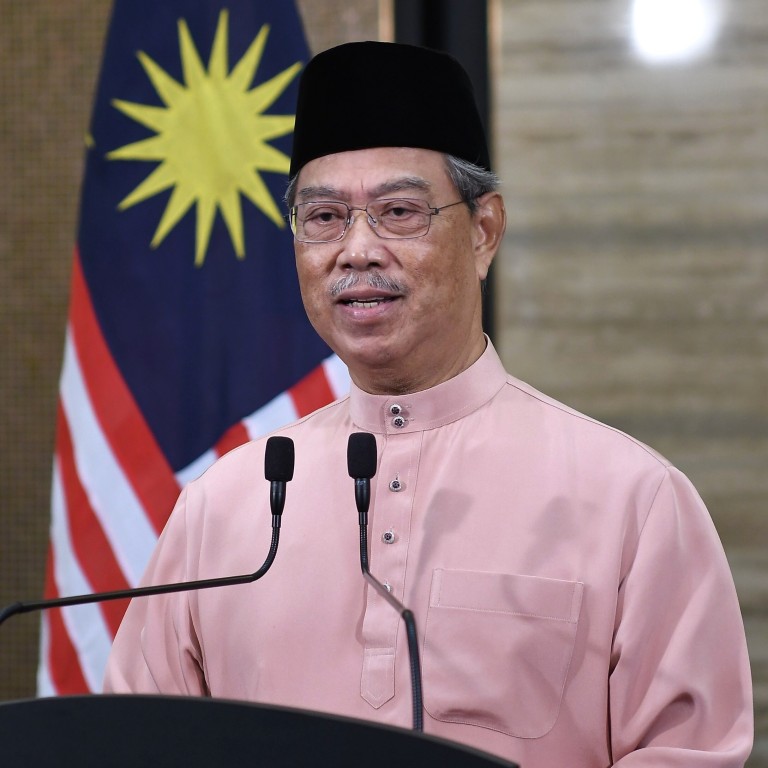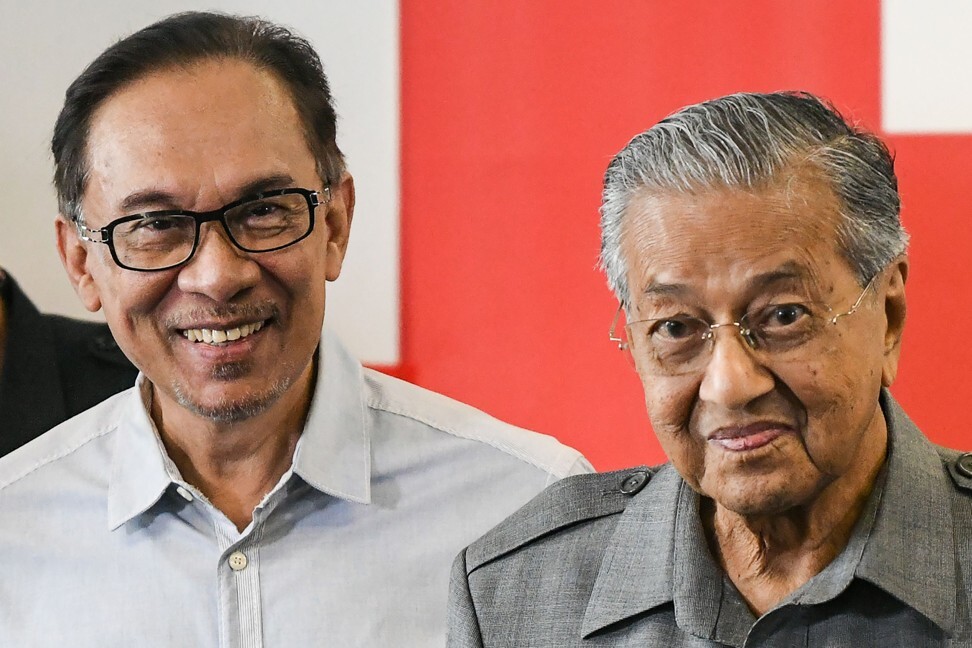
Coronavirus: as Muhyiddin extends Malaysia’s partial lockdown, opposition seeks to topple him
- Gatherings of up to 20 people are permitted as Malaysia’s restrictions are slowly eased, although interstate travel is still banned
- Muhyiddin’s virus fight comes amid rising pressure by the Pakatan Harapan coalition, which has accused his government of coming to power through political trickery
“Even though we have achieved many positive developments in our efforts to tackle the Covid-19 outbreak, we are not out of the woods yet,” Muhyiddin said in a televised address, adding that while interstate travel was still banned, visiting family or neighbours in the same state would be permitted within certain restrictions.
Gatherings of up to 20 people were also among the new relaxed measures.
Malaysia to hold no-confidence vote in Muhyiddin’s ‘back-door government’
The leader extended the lockdown as pressure mounted from a re-energised Pakatan Harapan opposition force that pledged to “return the mandate of the people”, arguing that Muhyiddin’s Perikatan Nasional coalition came to power through political trickery.
“The fighting spirit still burns in the souls of young people who dream of reform. The time has come for us to rise up once more and continue to return the mandate of the people to the right alliance,” the pair said, referring to the 2018 general election which saw voters dethrone the United Malays National Organisation-led coalition which had enjoyed over six decades of uninterrupted rule.
Mahathir and Anwar have long nursed a bitter relationship, with friction beginning during Mahathir’s first round as prime minister – from 1981 to 2003 – when Anwar was sacked as deputy prime minister and charged with corruption and sodomy.
Although the duo teamed up to take down their former political allies in the 2018 polls, the question of when Anwar would take over the role of premier from Mahathir placed heavy pressure on the Pakatan Harapan coalition as no strict timeline was put forth.
Can Malaysia cope with a ‘triple whammy’ economic shock?
Muhyiddin became prime minister in early March after the Pakatan Harapan coalition crumbled when the Malaysian United Indigenous Party (Bersatu) – of which Muhyiddin is president and Mahathir the chairman – exited the alliance.
Following a series of defections to Muhyiddin’s side, he was named premier by the nation’s king, later acknowledging to Malaysians that the new government was “not the one you voted for”.
Muhyiddin then postponed parliament by two months after Pakatan Harapan mooted a no-confidence motion, and then announced a partial national lockdown in mid-March after coronavirus cases skyrocketed.
Critics have claimed that the administration’s appointment of lawmakers to top decision-making positions in government-linked corporations is a means for Muhyiddin to shore up support in a fragile coalition, with Mahathir describing the tactic as outright “bribes”.
Malaysia says it has flattened the Covid-19 curve. But at what cost?
Now, due to legal requirements, Parliament is set to meet for just a day in mid-May, although government businesses will be prioritised, making it unlikely that a no-confidence motion from the opposition will be tabled.
It is thought that standard parliamentary procedure will be deviated from for the sitting, with no question time and only government bills to be discussed after the king’s opening speech. Law Minister Takiyuddin Hassan told local media earlier in the week that undiscussed matters would be carried forward to the next sitting, supposed to take place in July.
Under Malaysian law, Parliament can be postponed, provided that it is not more than six months since the last sitting.
But opposition leaders have criticised this, such as elder statesman Lim Kit Siang who described the move as a lockdown of Parliament to “avoid oversight and scrutiny to allow massive abuse of powers, rampant corruption, revival of kleptocracy and widespread violation of human rights”, raising questions as to whether the government was having a short sitting just to meet legal requirements rather than attend to the business of governance.
“We are running the risk of having no government oversight for months,” said political scientist James Chin of Tasmania University, a sentiment echoed by academic Awang Azman Awang Pawi of University Malaya’s Institute of Malay Studies, who suggested that Parliament continue as usual but online.
“Unless this is done, there is no real way for checks and balances to be heard,” Azman said.
Help us understand what you are interested in so that we can improve SCMP and provide a better experience for you. We would like to invite you to take this five-minute survey on how you engage with SCMP and the news.


